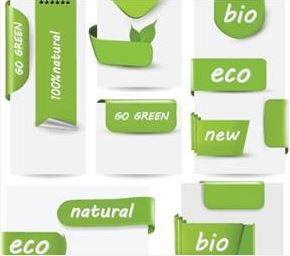« The number of ethical labeling schemes is proliferating in the cosmetics industry. Growing consumer demand for eco-labelled products is behind this trend, however Organic Monitor questions the long term implications.
Most label developments have been in the natural & organic cosmetics market. There are now over 30 symbols and labels that represent natural and organic cosmetic standards. Ecocert and NaTrue have gained most international traction, with the Ecocert logo now present on over 12,000 cosmetic products.
Adoption rates of natural & organic cosmetic standards vary considerably between regions. Western Europe has the highest adoption rate where almost 3 % of all cosmetics are now certified. Certification is also gaining popularity in North America, however the market share remains below 1 % in all other regions. Adoption rates are especially low in Asia, where mostly imported products are certified.
Proliferation is occurring as eco-labels cross over from the food to cosmetics industry. Fairtrade, the second largest eco-label for food products, is becoming popular in parts of Europe. The Vegan Society and Vegetarian labels are also migrating from food products to cosmetics. The Rainforest Alliance seal – highly evident on food commodities – is also now approved for use on cosmetic products.
Other labels represent some environmental or ethical aspects. In Scandinavia, the Nordic Swan and EU Eco-flower are well-established, representing cosmetic products with low environmental impacts. Cruelty-Free logos, such as the Leaping Bunny, are also commonly used by ethical cosmetic brands in Europe and North America.
The Halal label is possibly the most prospective. Unlike other labels, it appeals to religious beliefs – and not environmental / ethical concerns – of consumers. With 1.5 billion Muslim consumers, it is getting interest from exporters in the west, as well as Asian and Middle-Eastern brands. Halal certified cosmetics contain no ‘forbidden’ ingredients.
As will be shown at Sustainable Cosmetics Summit Europe, there are concerns about the ramifications of this proliferation in labels. First, most labels are adopted on a national basis, with few having a significant regional presence. Second, there is little harmonization between the growing myriad of standards. Even in the natural & organic cosmetics industry, there has been little progress in aligning standards.
As a consequence, multiple logos and symbols are appearing on cosmetic products. One of the key lessons from the sustainable food industry is that this development leads to consumer confusion. Whilst standards assure consumers that certified products meet some ethical requirements, the plethora of symbols and logos has a counter effect. A wider question is: how many ‘badges of honor’ does a truly ethical product need? The future direction of ethical labels will be discussed in the upcoming Sustainable Cosmetics Summit…”
Cet article n’engage que son auteur/ This article is the sole responsibility of the author


